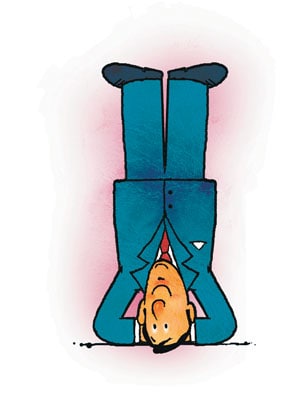
Short Funds Could be a Shortcut to Success
Funds that allow an investor to go short on the market are quite popular abroad. In India, their time has just come
Not everybody can short-sell. Maybe financial speculators like George Soros can. But many people feel that short selling is what separates the men from the boys in the financial market.
For some people, the present rich valuations in the stock market is a good opportunity to sell shares without actually owning them. In other words, this is the time to go short.
On the other hand, someone who has been buying mutual funds and has never looked at the concept of shorting the market is unlikely to think about such options.
But what if there was a retail product that would allow a retail investor to invest Rs. 1,000 and see the investment double when the market halves?
Short funds are typically exchange traded funds (ETFs) that allow retail investors to take positions in the market and give inverse returns to the market movement. “These types of products are more for the institutional investor than the retail investors even in developed markets. These products might lead to higher volatility. But at the same time, these products should be welcome in Indian markets as they will get in the best global practices and make our markets more mature”, says Nipun Mehta, executive director and head of private banking, Société Générale in India.
Investors use short funds or inverse funds when they feel that there is a clear possibility that markets are going to fall in the near future. The Indian retail investor has always been taught that money in the markets is to be made only in the long run by buying and holding stocks. These funds will give easy options to go short on the market for everyone who believe that the market will fall. This should ideally bring in more depth to the market but will also increase the downward volatility of the market.
(This story appears in the 30 November, -0001 issue of Forbes India. To visit our Archives, click here.)





